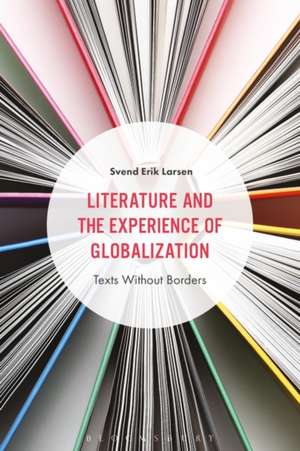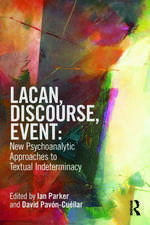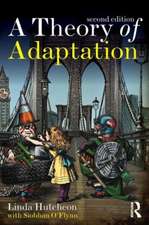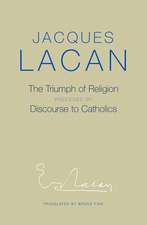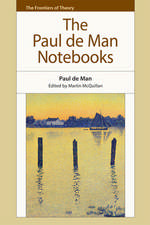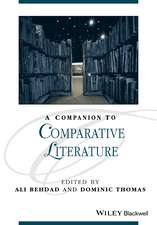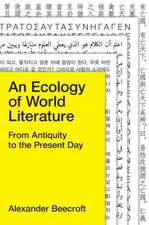Literature and the Experience of Globalization: Texts Without Borders
Autor Professor Svend Erik Larsenen Limba Engleză Hardback – 18 oct 2017
| Toate formatele și edițiile | Preț | Express |
|---|---|---|
| Paperback (1) | 233.26 lei 6-8 săpt. | |
| Bloomsbury Publishing – 17 apr 2019 | 233.26 lei 6-8 săpt. | |
| Hardback (1) | 717.54 lei 6-8 săpt. | |
| Bloomsbury Publishing – 18 oct 2017 | 717.54 lei 6-8 săpt. |
Preț: 717.54 lei
Preț vechi: 1029.44 lei
-30% Nou
Puncte Express: 1076
Preț estimativ în valută:
137.32€ • 142.83$ • 113.36£
137.32€ • 142.83$ • 113.36£
Carte tipărită la comandă
Livrare economică 14-28 aprilie
Preluare comenzi: 021 569.72.76
Specificații
ISBN-13: 9781350007567
ISBN-10: 1350007560
Pagini: 336
Ilustrații: 3 bw illus
Dimensiuni: 156 x 234 mm
Greutate: 0.64 kg
Editura: Bloomsbury Publishing
Colecția Bloomsbury Academic
Locul publicării:London, United Kingdom
ISBN-10: 1350007560
Pagini: 336
Ilustrații: 3 bw illus
Dimensiuni: 156 x 234 mm
Greutate: 0.64 kg
Editura: Bloomsbury Publishing
Colecția Bloomsbury Academic
Locul publicării:London, United Kingdom
Caracteristici
Includes close readings of works by Shakespeare, Goethe, J.M. Coetzee, Amitav Ghosh and an international range of writers
Notă biografică
Svend Erik Larsen is Professor Emeritus at Aarhus University, Denmark, Yangtze River Professor at Sichuan University, China, and Honorary Professor at University College London, UK. His previous books include, as co-author, Signs in Use: An Introduction to Semiotics (2002).
Cuprins
Foreword: A Cultural Duck-Billed PlatypusPart 1: Globalization in a Literary Perspective1. The Breathing of Culture2. Globalization as Everyday Life3. Literature as a Challenge to Globalization4. Knowledge as Creative Lying5. Mediated Presentations of RealityPart 2: Literature in the Global Perspective6. Memories for the Future7. The Creative Dynamics of Translation8. Embodied Worlds9. Travelling Places10. On the MoveConclusion: World Literature or Literature Around the World?Afterword: The Story of the Duck-Billed PlatypusFurther ReadingWorks CitedIndex
Recenzii
[Larsen] makes interesting and useful parallels between past and present, and his examples are often odd and refreshing ... he makes history come alive in relation to literature, with an appealing mix of fact and analysis that creates a pleasant read that avoids the obscurantism too common in academic works ... Larsen demonstrates an unwavering voice of passion for global literatures that is contagious in the reader, with plain language for complex ideas that suggests a gifted professor, and overall I would recommend this book.
Larsen is best when he demonstrates how, as he writes in chapter 3, a variety of texts turn "comprehensive and complex conceptions [of globalization] into concrete reality" for individual characters and readers. Summing Up: Recommended. Upper-division undergraduates through faculty.
This book offers a fresh, original, and wide-ranging take on what world literature is and means. Larsen's readings of a number of classics as well as of less-known works from less-known literatures are invariably illuminating. A must for anyone interested in how literature relates to globalization and for understanding what world literature studies is about.
Which questions can we ask to past literature from the view-point of our historical consciousness and the criss-crossing of literatures and media? How can we read literature today and relate as readers with the innumerable texts that, in the last decades, have been dealing with problems of personal or collective identity, migrations, exiles, the intermingling of languages or the discrepancies between mother tongue and adopted speech? Challenging any simple economic, political, cultural and literary determinism, Larsen forcefully claims that fiction is an indispensable tool to think the conditions we live in, not as perfect description or explanation, but as a dynamic account of the experience of human life in a present that is already hinting at our future.
Larsen is best when he demonstrates how, as he writes in chapter 3, a variety of texts turn "comprehensive and complex conceptions [of globalization] into concrete reality" for individual characters and readers. Summing Up: Recommended. Upper-division undergraduates through faculty.
This book offers a fresh, original, and wide-ranging take on what world literature is and means. Larsen's readings of a number of classics as well as of less-known works from less-known literatures are invariably illuminating. A must for anyone interested in how literature relates to globalization and for understanding what world literature studies is about.
Which questions can we ask to past literature from the view-point of our historical consciousness and the criss-crossing of literatures and media? How can we read literature today and relate as readers with the innumerable texts that, in the last decades, have been dealing with problems of personal or collective identity, migrations, exiles, the intermingling of languages or the discrepancies between mother tongue and adopted speech? Challenging any simple economic, political, cultural and literary determinism, Larsen forcefully claims that fiction is an indispensable tool to think the conditions we live in, not as perfect description or explanation, but as a dynamic account of the experience of human life in a present that is already hinting at our future.
